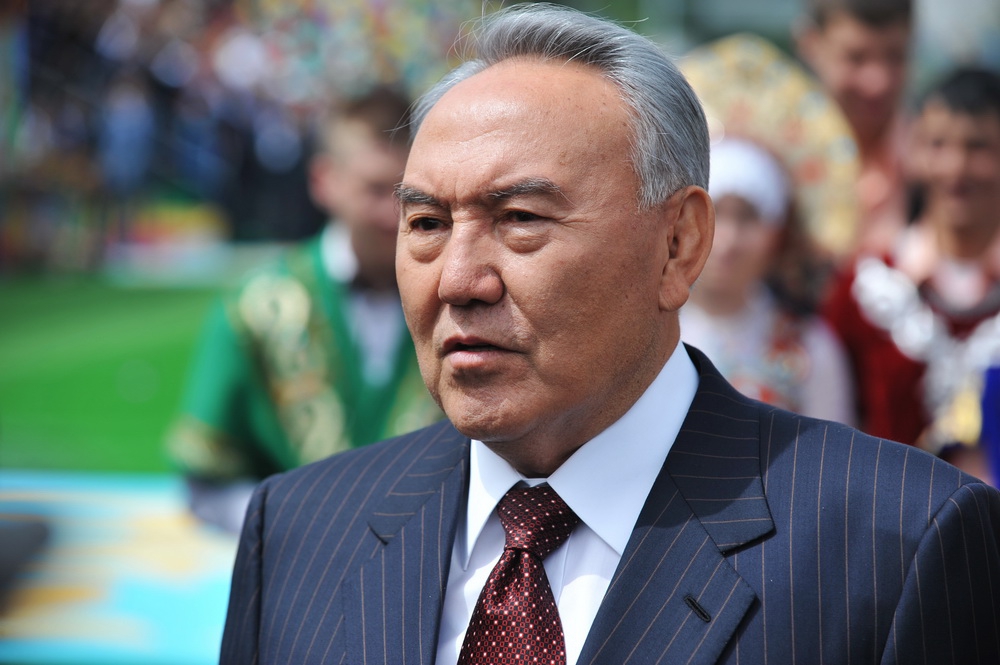 Kazakhstan, large in territory, but scarcely populated Central Asian republic, rarely gets attention in world news. The country is most known for vast oil fields and as the largest uranium exporter in the world.
Kazakhstan, large in territory, but scarcely populated Central Asian republic, rarely gets attention in world news. The country is most known for vast oil fields and as the largest uranium exporter in the world.
Nursultan Nazarbayev, Kazakhstan’s President who also holds the official title of the “Leader of the Nation,” uses the country’s natural resources for personal enrichment, but also for advancing some daring reforms. A former communist boss and autocrat, Nazarbayev has ruled Kazakhstan since 1989.
Nazarbayev has introduced admirable reforms in education, generated on his own, borrowed, or bought from foreign advisors. Nazarbayev University is one; promoting English in the curriculum in schools and universities is another. Finally, switching to the Latin alphabet was yet another bold move that will affect higher education.
Compared to other former communist rulers, whose speeches and politics are full of empty rhetoric, Nazarbayev’s ideas have resulted in bold reforms. However, implementation remains a problem. Furthermore, consequences of these reforms are problematic as well.
The far-reaching educational initiatives, undertaken by the Kazakhstani president, may go sour before they come to full fruition. Nazarbayev University cost Kazakhstani taxpayers billions of dollars, but has failed to register on international university rankings as intended. The university, directed towards the elite, fails the diversity test, further deteriorating and weakening social cohesion.
Encouraged by the government, thousands of school teachers have attempted to teach their classes in English, but their preparation and ability is highly doubtful hindering the ability of students to learn in a foreign language. Anyone who knows or pretends to know English jumped into this initiative, regardless of prior training. Foreign experts have been invited to help implement the changeover of the alphabet, similar to initiative implemented in the oil-rich Azerbaijani in the early 1990s. The massive change of the language of instruction and incorporation of a new alphabet may ultimately threaten the territorial integrity of Kazakhstan. Northern industrialized regions of the country are populated predominantly by ethnic Russians, and the mass introduction of English as a language of instruction and the replacement of Cyrillic with the Latin alphabet are not likely to be welcomed.
In the 2019 world university rankings by Times Higher Education, Kazakhstan managed to get only one of its universities into the first one thousand. Al-Farabi Kazakh National University in Almaty placed somewhere between 801 and 1000. Another leading Kazakhstani school with strong Russian influence, Gumilyov Eurasian National University, placed somewhere beyond 1001 and was merely mentioned in the rankings. Al-Farabi Kazakh National University was established during the Soviet era, while Gumilyov Eurasian National University was created later. This ranking suggests the superiority of the Soviet-influenced university, followed by the Russian-oriented one, with the western-influenced Nazarbayev University at the very bottom.
Kazakhstan seems unable to break ties with the past or overcome corruption in public services. New cadres are needed to run the economy and society, both of which are in acute need of modernization, but without new type schools and universities this task will prove impossible. Towards this end, Nazarbayev sent thousands of young Kazakhs to study abroad under the Bolashak program, with destinations at top schools in the US, EU, and Canada. However, emphasis was placed on masters’ programs at the expense of more costly and lengthy doctoral programs.
The country has only sent a few students to pursue doctorates abroad. Additionally, Nazarbayev decided to establish a new, modern university. Although Nazarbayev University has incorporated many foreign advisors, too much power has been concentrated in the hands of national university administrators. Leading universities that partner with Nazarbayev University, have included Cambridge, Duke, Pennsylvania, Pittsburgh, and UW-Madison. Foreign universities too often see partnerships like this as a source of revenue rather than a mutually beneficial cooperative arrangement. An affiliation with the world’s top institutions will not save the project. Without true university autonomy, any conversation about sustainability or quality would be premature.
Nazarbayev’s reforms remain problematic and the consequences may become serious challenges. Analysis of the reforms—their content, structure, and history—show that they reflect the priorities of President Nazarbayev, while too often other participants are merely in pursuit of personal benefits, sometimes sabotaging project objectives. Sadly, there are greedy individuals eager to benefit from short-term advantage rather than the greater advantages of long-term, critical reforms.
Despite the shortcomings of implementation, Nazarbayev’s progressive agenda for the future of Kazakhstan is undeniable. Kazakhstan’s former communist neighbors, including Central Asian states in the south, the Russian Empire in the north, and struggling Ukraine in the west, are far behind in terms of reforming their educational sectors. Unlike neighboring dictators, Nazarbayev is trying to pull Kazakhstan into 21st century through education.
Ararat L Osipian is a fellow of the Institute of International Education, United Nations Plaza, New York, and honorary associate at the Department of Political Science, University of Wisconsin-Madison, and holds a PhD in Education and Human Development from Peabody College of Education at Vanderbilt University, where he came as a fellow of the US Department of State.
By Ararat L. Osipian
Inside Higher Ed, November 26, 2018




